
The Climate and Culture Emergency Cohort (formerly the PWIAS Catalyst Program) supports inter- and trans-disciplinary collaborations that address the urgency, scale and complexity of the climate crisis, climate justice and biodiversity loss. By connecting scholars, students, artists, disciplines, sectors and communities we hope to expand the ways of knowing and acting in this challenging socio-ecological moment.
The Peter Wall Institute for Advanced Studies and the UBC Emeritus College have assembled a cohort of Emeriti to participate in the 2022-23 PWIAS Catalyst Program focusing on the Climate Emergency.
The objectives of the Cohort are:
- To bear witness to the life-time commitment of UBC’s Emeriti to a societal problem of the utmost urgency
- To enhance the visibility of, and intellectual exchange, between PWIAS and the UBC Emeritus College
- To demonstrate both the progress in understanding of the Climate and Nature Emergency that have been achieved at local, regional and national scales, and our collective failure to protect our landscapes, seascapes and urbanscapes at global scale from unnecessary harm during this time of rapid climate change
The cohort meet monthly to share research experience and engage with guest lecturers on the topic of the Climate and Culture Emergency.
| Cohort Reports | |
|---|---|
| Climate and Culture Emergency Cohort Contribution to the Emeritus College PDF | September 2025 |
2025-2026 Climate and Nature Emergency Cohort Members

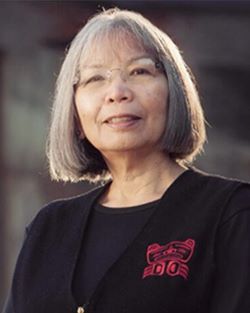
Jo-ann Archibald, Emeritus Professor of Educational Studies, is an Indigenous scholar and pioneer in the advancement of Indigenous education, from early learning to graduate education. Her research and educational practice have addressed Indigenous knowledge systems, particularly oral traditions and stories, Elders’ and Indigenous community-based perspectives and ways of knowing, Indigenous methodologies and theories, decolonization of research and education, and reconciliation within educational systems.

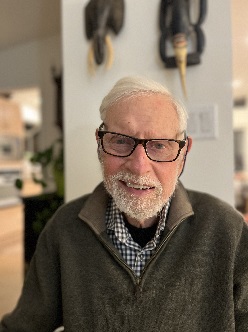
John Millar, Clinical Professor Emeritus of Population and Public Health, currently focuses on the Polycrisis: global warming (phase out fossil fuel extraction and consumption with a just transition), ecological overshoot ( reduce consumption and waste, circular economy), reverse the growing social and economic inequities which immiserate millions (leading to unemployment ,poverty, homelessness, despair, addictions (alcohol/drugs), suicides, overdoses, violence and more broadly the erosion of trust in public institutions and democracy.

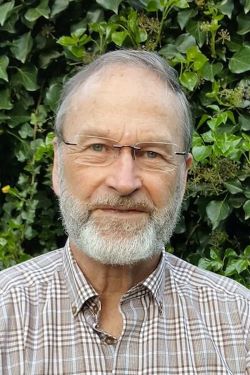
William Rees, Professor Emeritus of the School of Community and Regional Planning is a long-term member of the Global Ecological Integrity Group, a Fellow of the Post Carbon Institute, a founding member and Past President of the Canadian Society for Ecological Economics, and Founding Director, of the OneEarth Initiative. He was the inventor of the “ecological footprint” concept that has influenced a number of European countries’ economic budgets and gave rise to the concept of “overshoot”.

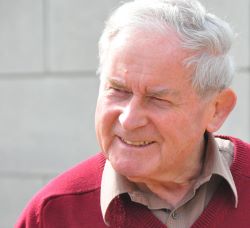
Olav Slaymaker, Professor Emeritus of Geography, is an authority on changing landscapes at local, regional and global scales, and a consultant to UNESCO’s World Heritage Site selection criteria. He is a former Governor of the International Development Research Centre (1994–2002), and President of the International Association of Geomorphologists (1997–2001). He co-authored Canada’s Changing Cold Climates (with Hugh French) 2012 and The Cryosphere and Global Environmental Change (with Richard Kelly) 2007, and is currently focused on protected areas in Canada, with recent chapters on protected areas of western (2017) and eastern Canada (2020).

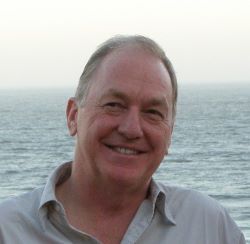
Douw Steyn, Professor Emeritus of Earth, Ocean and Atmospheric Science, is active in the fields of air pollution meteorology, boundary layer meteorology, mesoscale meteorology, environmental science, and interdisciplinary science. He is an authority on ozone pollution in the Lower Fraser Valley and applied meteorology in complex terrain.

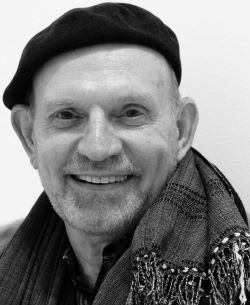
Frank Tester, Professor Emeritus of Social Work and Family Studies, is an advocate, researcher and consultant on environmental issues, especially in Canada’s Arctic. He focusses on the social and environmental history of the eastern Arctic. He has expertise in Canadian environmental issues, aboriginal global trade issues, and the Nunaunt and Inuit of the Eastern Arctic.

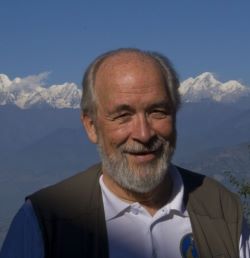
Robert Woollard, Emeritus Professor of Family Practice has extensive national and international experience in the fields of medical education, social accountability of medical schools, ecosystem approaches to health, poverty reduction and sustainable development. In this he has or is holding leadership roles in the CFPC, CMA, AFMC, AMEE, and The Network TUFH. He is actively involved in Nepal with a national medical school, school of public health and a nursing school founded on the principles of social accountability established through his initial feasibility study. He currently chairs the International Advisory Board (composed of senior academics from universities around the world) working with Nepali policy makers and academics towards the establishment of the University of Nepal—a new public liberal arts university. His work in East Africa and Asia is centered on matters of social accountability, primary care, rural health and accreditation systems.

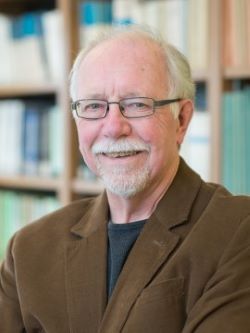
Graeme Wynn, Professor Emeritus of Historical Geography, is an authority on environmentalism in North America and New Zealand. Forestry, agriculture and sustainability have been his main interests. He was the President of the American Society for Environmental History and recently authored a paper in Environmental History entitled “Framing an Ecology of Hope” (2020), which is of high relevance to the Emeritus cohort. In 2019, he co-edited The Nature of Canada, which includes 18 invited essays on the transformation of Canada’s environments.
2024-2025 Climate and Nature Emergency Cohort Members


Jo-ann Archibald, Emeritus Professor of Educational Studies, is an Indigenous scholar and pioneer in the advancement of Indigenous education, from early learning to graduate education. Her research and educational practice have addressed Indigenous knowledge systems, particularly oral traditions and stories, Elders’ and Indigenous community-based perspectives and ways of knowing, Indigenous methodologies and theories, decolonization of research and education, and reconciliation within educational systems.


John Millar, Clinical Professor Emeritus of Population and Public Health, currently focuses on the Polycrisis: global warming (phase out fossil fuel extraction and consumption with a just transition), ecological overshoot ( reduce consumption and waste, circular economy), reverse the growing social and economic inequities which immiserate millions (leading to unemployment ,poverty, homelessness, despair, addictions (alcohol/drugs), suicides, overdoses, violence and more broadly the erosion of trust in public institutions and democracy.


William Rees, Professor Emeritus of the School of Community and Regional Planning is a long-term member of the Global Ecological Integrity Group, a Fellow of the Post Carbon Institute, a founding member and Past President of the Canadian Society for Ecological Economics, and Founding Director, of the OneEarth Initiative. He was the inventor of the “ecological footprint” concept that has influenced a number of European countries’ economic budgets and gave rise to the concept of “overshoot”.


Olav Slaymaker, Professor Emeritus of Geography, is an authority on changing landscapes at local, regional and global scales, and a consultant to UNESCO’s World Heritage Site selection criteria. He is a former Governor of the International Development Research Centre (1994–2002), and President of the International Association of Geomorphologists (1997–2001). He co-authored Canada’s Changing Cold Climates (with Hugh French) 2012 and The Cryosphere and Global Environmental Change (with Richard Kelly) 2007, and is currently focused on protected areas in Canada, with recent chapters on protected areas of western (2017) and eastern Canada (2020).


Douw Steyn, Professor Emeritus of Earth, Ocean and Atmospheric Science, is active in the fields of air pollution meteorology, boundary layer meteorology, mesoscale meteorology, environmental science, and interdisciplinary science. He is an authority on ozone pollution in the Lower Fraser Valley and applied meteorology in complex terrain.


Frank Tester, Professor Emeritus of Social Work and Family Studies, is an advocate, researcher and consultant on environmental issues, especially in Canada’s Arctic. He focusses on the social and environmental history of the eastern Arctic. He has expertise in Canadian environmental issues, aboriginal global trade issues, and the Nunaunt and Inuit of the Eastern Arctic.


Robert Woollard, Emeritus Professor of Family Practice has extensive national and international experience in the fields of medical education, social accountability of medical schools, ecosystem approaches to health, poverty reduction and sustainable development. In this he has or is holding leadership roles in the CFPC, CMA, AFMC, AMEE, and The Network TUFH. He is actively involved in Nepal with a national medical school, school of public health and a nursing school founded on the principles of social accountability established through his initial feasibility study. He currently chairs the International Advisory Board (composed of senior academics from universities around the world) working with Nepali policy makers and academics towards the establishment of the University of Nepal—a new public liberal arts university. His work in East Africa and Asia is centered on matters of social accountability, primary care, rural health and accreditation systems.


Graeme Wynn, Professor Emeritus of Historical Geography, is an authority on environmentalism in North America and New Zealand. Forestry, agriculture and sustainability have been his main interests. He was the President of the American Society for Environmental History and recently authored a paper in Environmental History entitled “Framing an Ecology of Hope” (2020), which is of high relevance to the Emeritus cohort. In 2019, he co-edited The Nature of Canada, which includes 18 invited essays on the transformation of Canada’s environments.
2022-23 Wall Catalyst Program on the "Climate and Nature Emergency"
The PWIAS Catalyst Program supports inter- and trans-disciplinary collaborations that address the urgency, scale and complexity of the climate crisis, climate justice and biodiversity loss. By connecting scholars, students, artists, disciplines, sectors and communities we hope to expand the ways of knowing and acting in this challenging socio-ecological moment. For more informaiton please see the PWIAS website.
The Peter Wall Institute for Advanced Studies and the UBC Emeritus College have assembled a cohort of Emeriti to participate in the 2022-23 PWIAS Catalyst Program focusing on the Climate and Nature Emergency.
The objectives of the Wall Catalyst Emeriti Cohort are:
- To bear witness to the life-time commitment of UBC’s Emeriti to a societal problem of the utmost urgency
- To enhance the visibility of, and intellectual exchange, between PWIAS and the UBC Emeritus College
- To demonstrate both the progress in understanding of the Climate and Nature Emergency that have been achieved at local, regional and national scales, and our collective failure to protect our landscapes, seascapes and urbanscapes at global scale from unnecessary harm during this time of rapid climate change
The Wall Catalyst Emeriti cohort meet monthly to share research experience and engage with guest lecturers on the topic of the Climate and Nature Emergency.
They plan to engage with the general membership of the UBC Emeritus College by contributing to the College’s general programming, which is open to the general public. The initiative will generate op-ed pieces and/or manifestos in the public media and, where possible, reinforce local initiatives relevant to ameliorating environmental change impacts. It will potentially also lead to follow-up study groups with subsequent reports and an open symposium.
Backgrounder - Learn more about how this program came together
AN OVERVIEW OF A NEW COLLABORATION BETWEEN THE UBC EMERITUS COLLEGE
AND THE PETER WALL INSTITUTE FOR ADVANCED STUDIES
THE CLIMATE AND NATURE EMERGENCY: PWIAS’S CATALYST PROGRAM FOR 2022–2023
by Olav Slaymaker, Professor Emeritus, Geography
Frontispiece: A Personal View of the Climate and Nature Emergency
Uncontrolled land use changes on Earth’s terrestrial surface have changed energy and mass balances worldwide to the extent that civilization as we know it is in jeopardy. Blame is commonly assigned to “climate change” or “natural hazards,” but human acquisitive behaviour is a more fundamental culprit that drives these phenomena, hence the increasing emphasis on the need for behavioural change. Unrestricted demographic growth, increasingly disrespectful exploitation of land—such as deforestation of old growth forests, mining without attendant land-surface restitution, poorly planned urban development, and transportation corridors that ignore community disruption—are, at one level, simply illustrations of the effects of our deeply ingrained dualism that separates “Man” from “Nature”. Postcolonial institutions, guided by the perceived need for accelerating economic growth, must surely be redesigned to respond to the actual need for global, regional, and local sustainability and climate justice. No single solution to a meta-problem like this can be offered. What is required to permanently reverse this growing emergency is nothing less than a First Nations-style deep love of land and a determination to protect our landscapes and seascapes from unnecessary harm.
The Challenge
On May 25, 2022, PWIAS (in the form of Vanessa Andreotti and Emma MacEntee) approached Olav Slaymaker with an idea that might challenge and engage the UBC Emeritus College in PWIAS’s Catalyst Program for 2022-2023: The Climate and Nature Emergency. At the Emeritus College Council meeting on June 8, the proposal received the Council’s support in principle. The germ of the idea was to establish a cohort of UBC Emeriti/ae who were experts in some aspect of the climate and nature emergency, and who would be expected to:
- Bear witness to their lifetime commitment to a societal problem of the utmost urgency;
- Enhance the visibility of, and intellectual exchange between, PWIAS and the UBC Emeritus College; and
- Demonstrate
- progress that has been achieved at local, regional, and national scales, and
- our collective failure to protect landscapes, seascapes, and urban-scapes at global scale from unnecessary harm during this time of rapid climate change.
The UBC Emeritus College Cohort (ECC)
Starting with the UBC List of Experts, and receiving suggestions from some of those experts, the ad hoc committee of Anne Junker, Carolyn Gilbert, Sandra van Ark and Olav Slaymaker selected 15 potential cohort members, of whom nine agreed to act, as follows:
Jo-Ann Archibald, Professor Emerita of Educational Studies and representing Indigenous perspectives on climate change
Hadi Dowlatabadi, Professor Emeritus of the Institute for Resources, Environment, and Sustainability, representing climate change mitigation, adaptation and policy
Penny Gurstein, Professor Emerita of the School of Community and Regional Planning, representing planning response to climate change
Ralph Matthews, Professor Emeritus of Sociology, representing risk perception and social construction of knowledge
William Rees, Professor Emeritus of the School of Community and Regional Planning, representing the ecological footprint idea that he invented
Olav Slaymaker, Professor Emeritus of Geography, representing love of landscape and protected areas under climate change
Douw Steyn, Professor Emeritus of Earth, Ocean and Atmospheric Science, representing air pollution meteorology and environmental science
Frank Tester, Professor Emeritus of Social Work and Family Practice, representing impact of climate change in Canada’s Arctic
Graeme Wynn, Professor Emeritus of Historical Geography, representing environmental history of Canada.
Invited Speakers
There followed a search for speakers to address the UBC ECC at eight monthly meetings at the PWIAS at lunch, lecture, and ensuing discussion (lasting from noon to 3 pm). Nine experts out of 20 invited, confirmed as of August 16, are as follows:
- Sept. 22: Kathy Harrison, UBC Professor of Political Science and COP delegate in Glasgow, 2021
- Oct. 20: Craig Brown, based at Vancouver Coastal Health and lead author of the BC Chapter in Canada in a Changing Climate (2022)
- Nov. 17: Nicholas Coops, UBC Professor of Forest Resource Managaement and Holds a Canada Research Chair in Remote Sensing
- Jan. 19: David Wilkinson, UBC Professor of Biological and Chemical Engineering working on sustainable solutions for energy and water use
- Feb. 16: Jessica Dempsey, UBC Associate Professor of Geography working on political economy and climate change
- Mar. 16: Robert Clifford, UBC Assistant Professor of Law working on Indigenous perspectives on climate change and Jocelyn Stacey, UBC Associate Professor of Environmental Law
- Apr. 20: Andrew Weaver, UVic Professor of Climate Science and former Leader of the BC Provincial Green Party
- May 11: Nancy Langston, Distinguished Professor of Environmental History, Michigan Technological University
Selection Criteria for membership of the ECC and Speakers’ List
With respect to inclusiveness, we failed to attract enough women to membership of the Emeritus Cohort (only 22% of the cohort), though we understand that there are only 27% women among the membership of the UBC Emeritus College. The gender disparity was corrected in our selection of speakers.
The ECC proposal was submitted on June 29 and approved by the PWIAS on Monday, July 4.
Acknowledgments: Special thanks to Anne Junker, Carolyn Gilbert and Sandra van Ark, who graciously added this project to their Spring workload without a murmur of complaint; also to Jo-ann Archibald, Ralph Matthews, William Rees, and Graeme Wynn, who wrote letters of invitation to speakers, and to Rafi Arefin, Hadi Dowlatabadi, Penny Gurstein, Kathy Harrison, Douw Steyn, and Frank Tester, who contributed ideas and time.